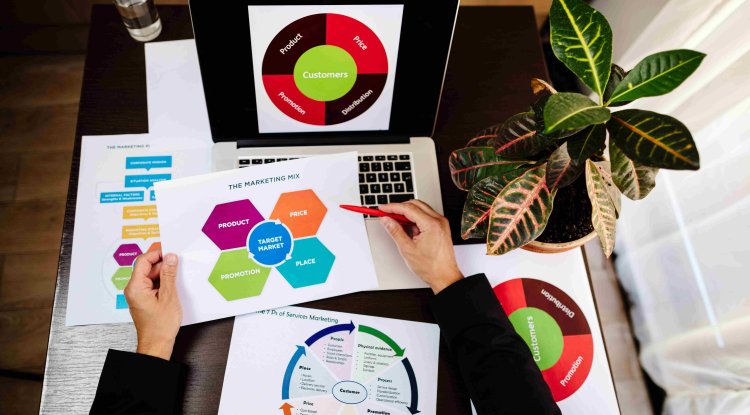Elevating Customer Engagement: The Power of Chatbots in Marketing Automation
Discover how integrating chatbots with marketing automation enhances customer engagement, drives conversions, and scales personalized interactions. Learn practical strategies and case study insights.

In today's hyper-connected world, customer expectations are higher than ever before. Brands are no longer expected to just offer a product or service; they must also deliver timely, personalized, and interactive experiences. As marketers, we are constantly seeking innovative ways to meet these demands. One such advancement that's transforming the marketing landscape is the integration of chatbots into marketing automation.
The intersection of chatbots and marketing automation has become a game-changer, driving deeper customer engagement while streamlining interactions. Let’s dive into how chatbots are enhancing marketing automation, enabling businesses to scale personalized communication and improve customer satisfaction.
The Evolution of Chatbots in Marketing
Chatbots, once seen as basic virtual assistants, have evolved into sophisticated AI-driven tools capable of handling complex queries and fostering meaningful conversations with customers. With the ability to engage users 24/7, they are becoming indispensable in marketing automation strategies. No longer confined to customer service, chatbots now play a central role in nurturing leads, driving sales, and elevating the overall customer experience.
Why Chatbots and Marketing Automation Go Hand in Hand
In the world of marketing automation, the goal is to optimize processes—automating repetitive tasks like sending emails, tracking user behavior, or scoring leads. By integrating chatbots into this ecosystem, businesses can supercharge their customer engagement efforts while gathering real-time data that can feed into their marketing strategies.
Consider this scenario: A potential lead visits your website, browses your offerings, and leaves without making a purchase. With a chatbot integrated into your marketing automation platform, you can set triggers based on their behavior—such as sending a follow-up message, offering a discount, or recommending relevant content based on their browsing history. This real-time engagement increases the likelihood of conversion, all while requiring minimal manual effort.
Case Study: Scaling Personalization with Chatbots
At SMRTMR.com, we integrated chatbots into our existing marketing automation framework to improve lead nurturing. A key challenge we faced was engaging website visitors who interacted with gated content but didn’t move forward in the funnel.
Our solution? A chatbot designed to appear at critical stages of the buyer’s journey. When a visitor downloaded an eBook but failed to engage with the next step, the chatbot would automatically trigger after a period of inactivity. The bot initiated a personalized conversation—asking the user if they needed further information, guiding them toward related resources, or even offering a consultation. This real-time, targeted interaction was made possible through smart automation workflows.
The results were impressive. We saw a 30% increase in lead engagement and a 15% boost in conversion rates—all driven by the chatbot’s ability to provide tailored interactions at the right time. By integrating the chatbot with our CRM, we also captured valuable user insights that helped optimize our broader marketing strategies.
Key Benefits of Chatbots in Marketing Automation
1. 24/7 Availability for Instant Engagement:
Chatbots never sleep. They provide around-the-clock assistance, ensuring that potential customers are always engaged, regardless of when they visit your website.
2. Data Collection and Segmentation:
As chatbots interact with users, they gather critical data that can be fed into your marketing automation tools. This information enables more precise lead scoring and segmentation, allowing you to craft highly personalized campaigns.
3. Streamlining the Sales Funnel:
Chatbots can qualify leads and guide them through the sales funnel by asking relevant questions, recommending products, or scheduling a demo. The chatbot acts as the first touchpoint, filtering leads before they reach your sales team.
4. Cost Efficiency:
Automating initial customer interactions reduces the need for large support teams, allowing businesses to scale their operations without a significant increase in costs.
5. Personalization at Scale:
Through intelligent automation, chatbots can create personalized experiences for users, addressing their specific needs based on behavior, preferences, and past interactions.
Integrating Chatbots into Your Marketing Strategy
The integration process should begin by identifying key touchpoints in the customer journey where chatbots can add the most value. This could be anything from the initial website visit to post-purchase support.
Here are some practical steps to get started:
-
Identify high-impact points: Determine where chatbot engagement will provide the most benefit, such as on landing pages, during product inquiries, or following a content download.
-
Map out automation workflows: Create workflows that align with your chatbot’s capabilities, ensuring seamless handoffs between human agents and automation.
-
Focus on personalization: Leverage the data collected by the chatbot to continuously improve user segmentation and tailor communication across all channels.
-
Measure and iterate: Track your chatbot’s performance regularly. Use metrics like engagement rates, lead conversion, and user feedback to refine your strategy.
Conclusion: Elevating Marketing with Chatbot-Driven Automation
The integration of chatbots into marketing automation is not just a trend—it's a strategic shift toward smarter, more efficient marketing operations. As businesses evolve in their digital transformation journeys, chatbots serve as a vital tool for scaling personalized interactions, driving engagement, and improving overall customer satisfaction.
At SMRTMR.com, we’ve seen firsthand the impact of this integration. By combining the power of AI-driven chatbots with robust automation frameworks, businesses can elevate their marketing efforts to new heights. The future of marketing is conversational, and those who embrace this shift will lead the way.
About Me
I am Raghav Chugh, a seasoned digital marketing and technology professional with over 14 years of experience in marketing automation, data management, and lead lifecycle design. With three Marketo Certified Expert (MCE) certifications, I’ve helped organizations optimize their marketing strategies, streamline their operations, and deliver impactful results. I’m passionate about using data to drive business success and am always exploring innovative ways to enhance marketing performance.
Connect with me on LinkedIn.
About SMRTMR.com
At SMRTMR.com (Strategic Marketing Reach Through Marketing Robotics), we are dedicated to providing valuable information and resources to readers across the globe. Our articles, like this one, aim to empower individuals and businesses with the knowledge they need to succeed in the ever-evolving digital landscape. Raghav Chugh, the founder of SMRTMR.com, brings his expertise in digital marketing and technology to each article. With a commitment to delivering high-quality, actionable content, SMRTMR.com has become a trusted source for professionals seeking to stay ahead in the world of digital marketing.
What's Your Reaction?




















